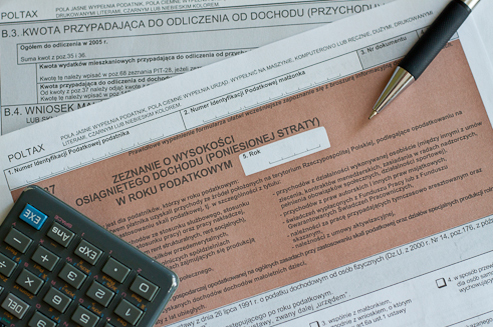Avoiding double taxation
Taxation of foreign-earned income is regulated by art. 15 of the Convention, entitled “Dependent personal services”. Its contents may raise some doubts. As Polish Minister of Finance explains, “it is not clear on the basis of this regulation that if a person whose place of residence is in Poland works in the Netherlands, then remuneration for this work can be taxed only in the Netherlands or that in cannot be taxed in Poland. On the contrary, in such a situation, Art. 15 Section 1 of the Convention entitles taxation of such income both in the Netherlands and in Poland.”[1] We find the solution in Art. 23 Section 5 p. a) of the Convention,[2] according to which “[…] the Republic of Poland shall allow as a deduction from the tax on the income of that resident, an amount equal to the income tax paid in the Netherlands. Such deduction shall not exceed, however, that part of the income tax, as computed before the deduction is given, which is attributed to the income which may be taxable in the Netherlands.” This is called a tax credit method. Thanks to it a person who earned income in the Netherlands can deduce the tax paid in the Netherlands on the income earned and taxed there from the tax due in Poland. This deduction, however, can be applied only to this part of the tax which would be equal to the amount of the tax payable on this income in Poland.[3] Please, look at the example:
- total income – 10,000.00, incl. income in Poland – 8,000.00; income in the Netherlands – 2,000.00
- tax rate in Poland: 18%
- tax rate in the Netherlands: 20%[4]
- tax paid in the Netherlands: 400
- tax due in Poland = (10,000.00 × 18%) = 1,800.00
- in Poland, the income of 2,000.00 would result in the tax liability of 2,000.00 × 18% = 360.00
- thus, a maximum of 360.00 can be deduced from the tax
- tax due in Poland = 1,800.00 – 360.00 = 1,440.00[5]
If we want to use this mechanism, we have to reveal the foreign income in Poland, in a yearly tax return.
Tax amnesty
In relation to a large number of Poles who would not reveal their foreign-earned income, a special, so-called “amnesty”, law was introduced.[6] Thanks to this law, one could apply for remission of the tax liability related to the foreign-earned income. Such remission only applied to the income for 2002 – 2007, and the due date for such an application has passed long ago. Still, the income from the following years can be subject to the so-called “amnesty relief”, introduced by the amnesty act. It is described in Art. 27g of the Personal Income Tax Act of 26 July 1991. An example of taking advantage of this tax relief follows, as mentioned in reference sources, follows:
“In 2012, Taxpayer A worked in the Netherlands. He earned (after conversion) PLN 30 000 net of taxes, and paid the tax of PLN 3000 (after conversion). In Poland, he earned PLN 20 000 net of taxes in the same year.
He calculated the tax with the use of the tax credit method. The tax on the sum of the Polish and Dutch income was PLN 10 000.
With the use of the tax exemption method, the income tax for 2012 would be PLN 5500.
In this case, the sum of relief is PLN 4500 (PLN 10 000 – PLN 5500), and the tax after deduction will be PLN 5500 (the same sum as the one resulting from the use of the exemption-with-progression method).”[7]
Adam Rajewski
Advocate, Grzybkowski Guzek Jackowski Adwokacka Spółka Partnerska
[1] Letter of the Ministry of Finance, Direct Tax Department, of 11 May 2005, PB7/033-0285-735/05/HM, published in: Biuletyn Skarbowy 2005/4/22
[2] The equivalent of this regulation is Art. 27 Section 9 of the Personal Income Tax Act of 26 July 1991
[3] Adam Bartosiewicz, Ryszard Kubacki, Commentary to Art. 27 of the Personal Income Tax, Warsaw 2013
[4] The rate is only an example here
[5] Based on the example provided in: Adam Bartosiewicz, Ryszard Kubacki, Commentary to Art. 27 of the Personal Income Tax, Warsaw 2013
[6] ACT of 25 July 2008 on special solutions for taxpayers who partially earn income outside the territory of the Republic of Poland (Journal of Laws [Dz. U.] of 6 August 2008)
[7] Adam Bartosiewicz, Ryszard Kubacki, Commentary to Art. 27 of the Personal Income Tax, Warsaw 2013
Photo © Anna Karahan


